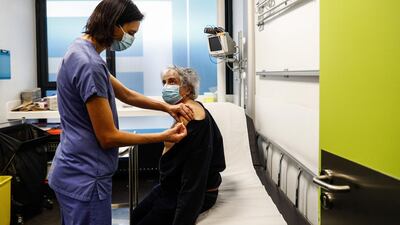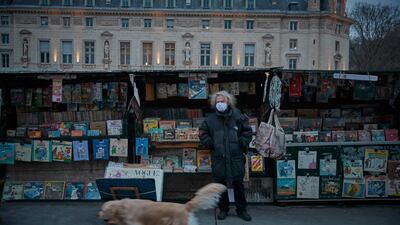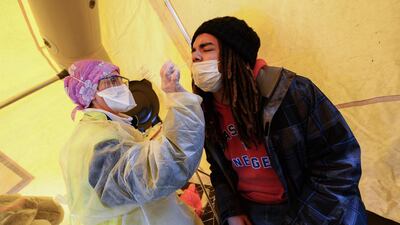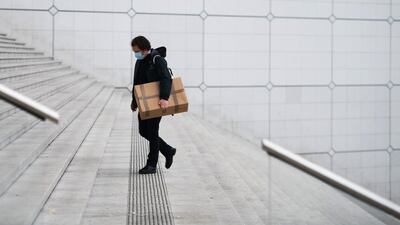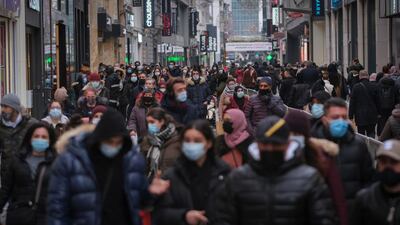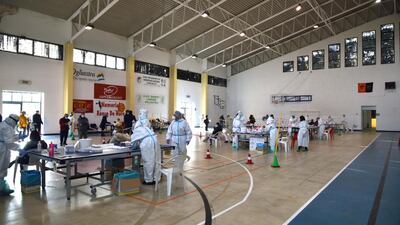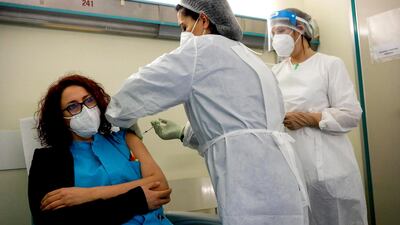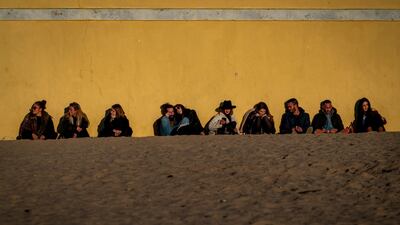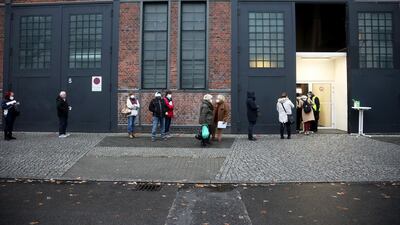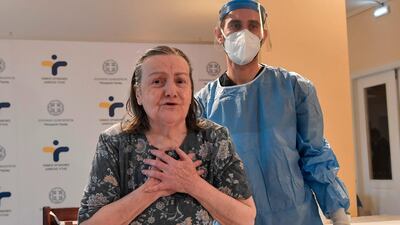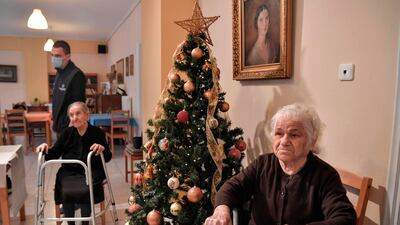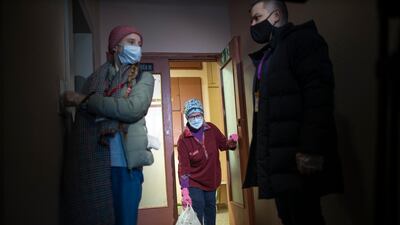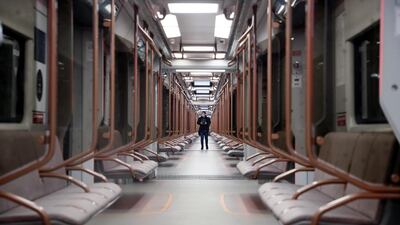France President Emmanuel Macron criticised what he called unwarranted slowness to the start of France's coronavirus vaccine programme as health workers called for Germany-style "vaccinodrome" centres.
As of Sunday, France vaccinated 516 people compared to 239,000 in Germany. Vaccinations using the Pfizer-BioNTech formula began in the EU on December 27.
Mr Macron rebuked Health Minister Olivier Veran and other officials on New Year's Eve for France's sluggish start, the Journal du Dimanche reported.
“Things have got to change fast and a lot,” he was reported to have told them.
Progress was slowed by red tape, a lack of nursing staff at the year-end holidays and the fact that only the elderly in nursing homes were to be inoculated in the first stage.
The government is cautious, allowing a consent period between the time people sign up for the vaccine and receiving it.
France has now widened the scope of vaccinations. At the weekend, medical staff older than 50 who were initially expected to be vaccinated at a later stage began to receive the shot.
But the process is still subject to a compulsory medical consultation and agreement before the dose can be given.
Alain-Michel Ceretti, president of France Assos Sante, which represents patients, called for Germany-style mass vaccination centres, known as vaccinodromes, in France.
“We don't understand why France did not do this,” he told news website Europe 1.
France's cautious approach was a response to public wariness of vaccines.
According to an Odoxa poll on Monday, 58 per cent of French people do not want the vaccine.
In part to assuage those concerns, Mr Veran had defended the government taking its time before Mr Macron said in a new year address that there should be no unnecessary delays.
“The most important thing is the administrative burden that we have in France, with this consent that each patient must give,” Stephane Paul, an immunologist who sits on the government vaccine advisory committee, said on BFM TV.
“We made the choice to go step by step to reassure the population, because we indeed have a French population which is quite hesitant about vaccination.”
The strategy of a campaign in stages had not changed, in spite of the initial sluggishness, a spokeswoman for the presidency said on Monday.
Some glitches can be smoothed out, such as reducing the consideration period or administrative delays, she said.
But plans for a careful introduction remain unchanged despite of the threat of a potential epidemic rebound after the year-end festivities or the threat of the new variant coronavirus from the UK, she said.
While nursing homes represent 1 per cent of the French population and a third of coronavirus deaths, they should be the priority, said Dominique Le Guludec, who heads the French National Authority for Health.
Frustration over the introduction of vaccines was also felt in Germany.
A German minister and the German-Turkish scientist who developed the Pfizer-BioNTech shot asked why the EU had not built up a significant stockpile of the only available vaccine.
Ugur Sahin, BioNTech's chief executive, said that things were "not looking rosy" as the EU only ordered up to 300 million doses – barely enough to cover 450 million residents.
Markus Soder, chief minister of Bavaria, said that the bloc’s vaccine orders were "clearly inadequate".
